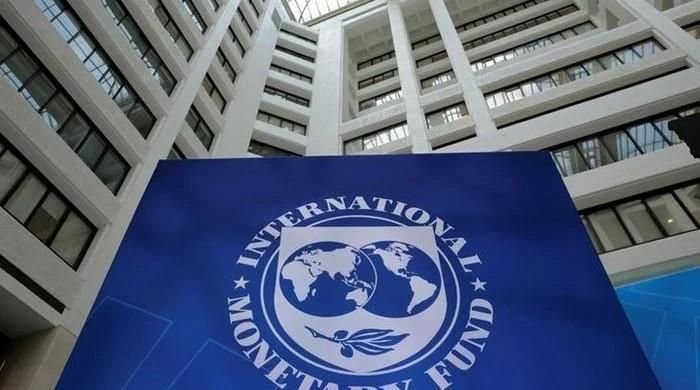The IMF estimates that if the recommendations are fully implemented, additional revenue of 0.5% of GDP could be generated annually.
- The IMF proposes cutting slabs from seven to four.
- It estimates that it could generate income of 0.5% of GDP.
- According to sources, FBR could increase its income.
ISLAMABAD: The International Monetary Fund (IMF) has proposed to the Federal Board of Revenue (FBR) to double the tax burden for salaried and non-salaried classes, which would affect the middle and upper middle income groups if accepted. News reported on Saturday.
The global lender has recommended raising taxes by removing their distinctions, reducing the number of slabs from seven to four and removing the tax exemption on private employers' contribution to pensioners.
The IMF estimated that if the Personal Income Tax (PIT) recommendations were fully implemented, additional revenue of 0.5% of GDP, equivalent to Rs 500 billion a year, could be generated.
In the current fiscal year, the FBR has so far collected Rs 215 billion from the salaried class in the first eight months (July-February) of the current fiscal year.
It is anticipated that the FBR could get approximately Rs 300 billion from the salaried class. The IMF recommendation on PIT could generate additional income of Rs 500 billion from both salaried and non-salaried classes.
High official sources confirmed News on Friday that the FBR could increase its revenue by removing exemptions and other preferential tax treatments.
Personal income tax tax rates must be simplified and the number of slabs must also be reduced in a single and progressive manner, as recommended by the IMF.
Currently, there are seven tax slabs. When the taxable income does not exceed Rs 400,000 for the salaried class, a zero tax rate is applied. When the taxable income exceeds Rs 400,000 but does not exceed Rs 1,200,000, a tax rate of 5% of the amount exceeding Rs 400,000 is applied. When the taxable income exceeds Rs 1,200,000 but does not exceed Rs 2,400,000, there is Rs 40,000 + 10% of the amount exceeding Rs 1,200,000.
In addition, when the taxable income exceeds Rs 2,400,000 but does not exceed Rs 3,600,000, a tax rate of Rs 160,000 + 15% of the amount exceeding Rs 2,400,000 is applied. When the taxable income exceeds Rs 3,600,000 but does not exceed Rs 4,800,000, a tax rate of Rs 340,000 + 20% of the amount exceeding Rs 3,600,000 is applied. When the taxable income exceeds Rs 4,800,000 but does not exceed Rs 6,000,000, a tax rate of Rs 580,000 + 25% of the amount exceeding Rs 4,800,000 is applied. In the last and seventh slab, where the taxable income exceeds Rs 6,000,000, there is a tax rate of Rs 880,000 + 30% of the amount exceeding Rs 6,000,000.
Tax experts believe that if the number of slabs were reduced, the progressivity of PIT would be reduced because the FBR would have to increase tax rates for income above Rs 2 crore, while the maximum rates in the existing slab apply. to income above 6 million rupees. annually.
The IMF has recommended lowering the income threshold for the highest rates.
The IMF has asked the FBR to revise the Second Schedule and Chapter III of the Income Tax Ordinance (ITO) to remove preferential treatment to employees in specific sectors, stock investment tax credit, deduction for mortgage payments, tax deductions for full-time work. teachers and researchers and keep the zero rate threshold at the same levels if it is not possible to reduce it.
All these measures could generate 0.5% of GDP in additional revenue for the national fund.
On the pensions front, the Washington-based lender has recommended ensuring that pension contributions or benefits are taxed. To achieve the objectives, the IMF has asked to eliminate the benefits of the deduction of voluntary payments to the workers' participation fund or eliminate the exemption of pensions and tax them applying one of the alternatives described.
When contacted, Dr Mohammad Iqbal, former member, tax policy, FBR, said that salary income was taxed on a gross basis and no deduction was allowed against salary income in Pakistan, while in the rest of the Various deductions were applied around the world, including personal expenses such as education. of children, they occur.
“All other sources of income, such as income from property or business, are reduced by various deductions and expenses, and no taxes are imposed on gross income, unlike salary income. In Pakistan, as sources of income “Wage earners are free to declare their income and pay taxes on it as per their choice, while salary income is fully documented and there is no room for under-declaration,” he added.
Originally published in The News












